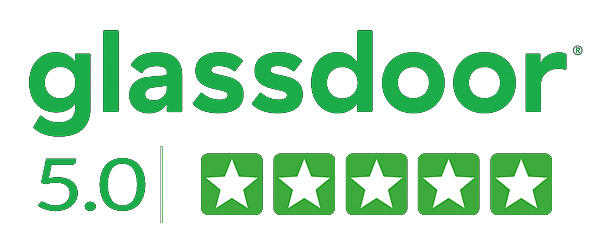Business-to-business (B2B) describes a relationship between companies that sell products and services to other businesses. B2B sales are complex, and large, and require multiple people who work in different roles over a long sales cycle. B2B sales often happen over the course of weeks rather than through a single transaction.
Common examples:
- Organizations that provide professional services to companies
- Businesses that provide digital or software services to companies
- Organizations that produce or distribute raw materials to manufacturing companies
B2B sales refer to a category of sales in which one business sells its products or services to another business. Because it typically involves higher price points, more complex processes, and multiple touchpoints across multiple channels. Business-to-business companies need to maintain a team of highly trained B2B sales professionals in order to grow revenue.
Difference between B2B sales and B2C sales
As their names suggest, business-to-business (B2B) and business-to-consumer (B2C) sales differ primarily in their target customers. While B2B companies sell products and services to other businesses, B2C companies treat the general public (or some segment of it) as their primary market and the end consumer.
The main differences are as follows:
- Price Point: B2B products and services generally cost more than many consumer goods.
- Addressable market size: B2C companies target thousands to millions of consumers while B2B companies may have a few to several hundred potential customers.
- Sales process complexity: B2C customers can easily make a buying decision on the spot, while B2B buyers are patiently nurtured before making a positive buying decision.
- The number of decision-makers: B2C purchases require only one person whereas many stakeholders are required to sign a B2B deal.
- Sales velocity: Business-to-business sales tend to have a longer sales cycle than B2C due to the complexity of the sales process.
- Sales Method: B2B sellers use cultivated sales techniques and follow well-regulated sales processes to be successful. B2C sellers also need to improve their sales skills but work in a less punishing environment.
- Customer service: To drive and increase the lifetime value of customers, B2B companies place a high premium on customer service, satisfaction, and success.
B2B Sales Representative:
A B2B sales representative is a professional who uses strategic sequences and specialized sales methods to engage corporate buyers. Because corporate buyers research products and services online before contacting a seller, these buyers are often well-informed and compare competing products at the same time.
Its representatives are responsible for a variety of tasks to secure an optimal B2B sales experience, including:
- Making and answering sales calls
- Manage sales email
- Setting up meetings
- Conducting product presentation
- Building rapport
- Handling Objections
- Identifying pain points, and solving customer problems
In cases where teams don’t have account executives, B2B sales reps own nearly the entire sales cycle, engaging customers throughout the buyer’s journey – from prospecting and nurturing to closing deals
B2B Sales Process:
Business-to-business sale is a complex process that requires an unambiguous and accomplished strategy to be successful. It follows a different approach and uses various sales techniques for different buyer personas and situations. The whole sale process including the exact number and names of stages in your sales process will depend on the company and sales organization. But most of the B2B sales process is a 5- to 8-stage sales cycle.
Example of a Seven-stage B2B sales cycle:
- Preparation / Research
- Prospecting
- Needs Assessment
- Presentation/Sales Pitch
- Handling Negotiations / Objections
- Ending
- Follow-up
How do Business-to-business sales?
This approach involves a number of factors, including seller qualification, sales process effectiveness, product fit, available alternatives, and the buyer’s purchasing power and willingness to adapt.
For all these moving parts to work together, businesses must:
- Build a Responsive B2B Sales Strategy
- Determine the best B2B sales techniques for your teams and ideal customers
- Create regulated playbooks and sequences for their sales reps to follow
- Measure and improve performance
B2B Sales Techniques:
There are a plethora of Business-to-business sales methods and frameworks to choose from. While they all claim to be effective, not all will be a good fit for your business and your sales organization. Some methods may work well for a specific industry but not others, while other methods are only successful if they fit the types of client accounts in your portfolio.
Most popular techniques:
- Sell solutions
- Challenger Sale
- Account-based selling
- Selling price
- Sandler selling systems
Difference between B2B outside and inside sales reps:
In Business-to-business sales, outside sales professionals often work outside an office because they are meeting with prospects and customers or presenting at an event. On the other hand, internal sales professionals engage with customers remotely through cold calling, email, and video conferencing.
Inside sales professionals can close deals without meeting their customers in person. In contrast, outside sales representatives almost always sell during or shortly after in-person meetings with customers.
This difference in approach to engagement requires different skill sets and sales techniques required for either practice. For example, outside sales professionals take advantage of in-depth product knowledge and personal communication skills, while sales professionals become adept at using CRM, a shared sales process, email, and social media. Recently, however, the line between inside and outside sales has begun to blur as outside sales reps begin to use the same communication techniques as well as engagement strategies preferred by inside sales professionals. Let’s start doing it.
The future of B2B sales
B2B sales are in a state of rapid change. The line between inside selling and outside selling is fading while best practices for consumer selling – especially when it comes to personalization – are becoming mainstream in B2B.
Sales tools introduced a few years ago (such as revenue intelligence platforms) have already become essential to survival. Technology and buyer-centricity are shaking up the ecosystem as AI and machine learning empower teams to drive both customer engagement and revenue.
TCI’s Review on B2B Sales
B2B sale is an effective remote sale channel to connect with customers/businesses to explore the business. But, effective content isn’t just about sharing your company’s news. It’s about building connections, establishing trust, and solving problems to enhance brand credibility.


